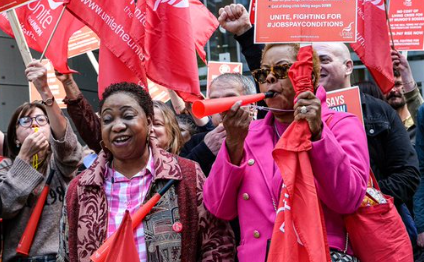Half the public do not think charity chief executives should be paid for leading a voluntary sector organisation, a survey has found.
It found that only 50% believe CEOs working in the sector should take home a salary. Even fewer (44%) think charity directors should be paid.
“These figures really drive home the difficulties that charities face with their supporters when it comes to demonstrating spending efficiency, said Ben Roberts, co-managing director of consultancy NfpResearch, which has published the research.
In October last year a separate survey by charity leadership body ACEVO revealed that 58% of charity chief executives were given a pay rise in 2022 amid the cost of living crisis, up substantially on the previous year when 37% of CEOs received a pay boost.
Roberts says that nfpResearch’s figures show that the charity sector has a tough job to explain such rises to the public.
“Only half of the public think that CEOs should be paid at all – so how can you effectively explain the rising incomes that they receive,” he said.
But the public is keener to see support staff working for charities paid. Almost two thirds (65%) want to see frontlines staff receive a salary. A similar proportion (68%) want to ensure that charity shop managers are paid. This is the highest proportion among those that think payment for charity work is necessary.
“This isn’t an enormous leap from the figure for CEOs,” said Roberts. “But this difference may have come about as a reflection of the negative connotations that the CEO role carries in the public imagination.”
He added that the popularity of pay for charity shop managers is perhaps “due to the day-to-day visibility of people in these roles, and the acknowledgment that shop management is worthy of payment in general”.
“In either case, there is at least a precedent for some charity workers being seen as deserving pay for their input.”
In publishing its survey, nfpResearch has also highlighted charities that have acknowledged the communication challenges the sector faces around leadership pay and has sought to reassure their supporters of their value.
This includes financial advice charity Turn2us, which said: “We believe that although the charity sector can’t, and shouldn’t, compete with the commercial sector on pay, we must offer a fair salary … proportionate to the complexity and responsibilities of each role.”
Similarly Save the Children said about its pay that “we acknowledge that debates over pay are important and reflect genuine public concerns. We are committed to achieving the right balance between recognising these concerns while ensuring our salary levels help attract the talent we need”.
According to ACEVO the average basic salary reported by charity leaders last year was £56,000.
“Explaining that compensating your workers is the reason that that your charity performs well, rather than being a barrier to it, is an effective argument against the fears around salaries,” added Roberts.
“Competitive hiring is a must within this sector, which can’t be fuelled simply on goodwill. These statements provide fantastic reasoning, boiling down to one eye-opening question: would YOU be able to work for free?”
Charity Times video Q&A: In conversation with Hilda Hayo, CEO of Dementia UK
Charity Times editor, Lauren Weymouth, is joined by Dementia UK CEO, Hilda Hayo to discuss why the charity receives such high workplace satisfaction results, what a positive working culture looks like and the importance of lived experience among staff. The pair talk about challenges facing the charity, the impact felt by the pandemic and how it's striving to overcome obstacles and continue to be a highly impactful organisation for anybody affected by dementia.
Charity Times Awards 2023
Mitigating risk and reducing claims

The cost-of-living crisis is impacting charities in a number of ways, including the risks they take. Endsleigh Insurance’s* senior risk management consultant Scott Crichton joins Charity Times to discuss the ramifications of prioritising certain types of risk over others, the financial implications risk can have if not managed properly, and tips for charities to help manage those risks.
* Coming soon… Howden, the new name for Endsleigh.
* Coming soon… Howden, the new name for Endsleigh.
Better Society

© 2021 Perspective Publishing Privacy & Cookies











Recent Stories